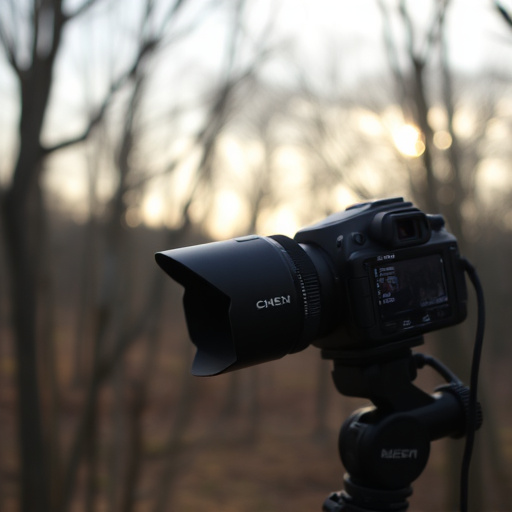Hidden camera laws vary widely across US states, regulating deployment in residential settings. Some states prohibit them in private areas, while others allow broader use with consent. Understanding these laws is crucial for users and manufacturers to ensure privacy rights and ethical standards in surveillance technology. As miniature cameras integrate into everyday home objects, consumers must stay informed about local regulations.
“In an era of technological advancement, miniature surveillance devices have seamlessly integrated into our daily lives. From smart home appliances to everyday objects, these tiny cameras offer convenience but raise significant privacy concerns. This article delves into the world of hidden camera laws by state, exploring the legal landscape surrounding this evolving issue. Understanding these regulations is crucial for consumers aiming to protect their privacy in an age where virtually any object could conceal a surveillance device.”
- Understanding Miniature Surveillance Devices
- Legal Framework: Hidden Camera Laws by State
- Privacy Concerns and Home Object Integration
Understanding Miniature Surveillance Devices
Miniature surveillance devices, often referred to as hidden cameras, have evolved significantly in recent years. These tiny, unassuming gadgets can fit into everyday objects like never before, making them powerful tools for both security and privacy concerns. From motion-activated sensors in books to voice-controlled assistants embedded in home decor, the possibilities seem almost endless. However, it’s crucial to navigate the legal landscape surrounding these devices, especially considering the varying Hidden Camera Laws by State.
In many jurisdictions, the use of hidden cameras is regulated to protect individual privacy rights. Some states have stringent rules on where and how such devices can be employed, while others offer more flexibility. Understanding these laws is essential for both consumers and manufacturers to ensure compliance and maintain ethical standards in surveillance technology.
Legal Framework: Hidden Camera Laws by State
The legal landscape surrounding miniature surveillance devices, or hidden cameras, varies significantly across different states in the US. Understanding Hidden Camera Laws by State is crucial for anyone considering deploying such technology within residential settings. Each state has its own set of regulations dictating where and how these devices can be installed and used without infringing upon privacy rights.
For instance, some states have strict prohibitions against hidden cameras in places like bathrooms, bedrooms, and other areas typically considered private sanctuaries. Others require explicit consent from all parties involved—both individuals and any residents—before installing a surveillance device. Still, there are jurisdictions that allow for broader use of these devices under specific conditions, such as for security or investigative purposes. Staying informed about the Hidden Camera Laws by State is essential to ensure compliance and respect for privacy regulations.
Privacy Concerns and Home Object Integration
The integration of miniature surveillance devices into everyday home objects raises significant privacy concerns among consumers and has sparked debates about hidden camera laws by state regulations. As technology advances, these tiny cameras become increasingly accessible, leading to a complex ethical dilemma. While advocates argue for enhanced security and peace of mind, critics emphasize the potential for invasion of privacy on a grand scale.
When incorporated into seemingly innocent home objects like lamps or smoke detectors, these devices can capture intimate moments without individuals’ knowledge. The challenge lies in balancing personal safety and surveillance with the right to privacy. Different states have varying hidden camera laws, addressing the placement and use of such devices, but consumers must remain vigilant about their rights and stay informed about local regulations regarding this technology.
As we’ve explored, miniature surveillance devices integrated into everyday home objects raise significant privacy concerns. While these technologies offer enhanced security and monitoring capabilities, it’s crucial to navigate their use within the context of state-specific hidden camera laws. Understanding both the legal boundaries and the potential impact on personal privacy is essential to ensuring a balanced approach to adopting such innovative but potentially intrusive devices.
